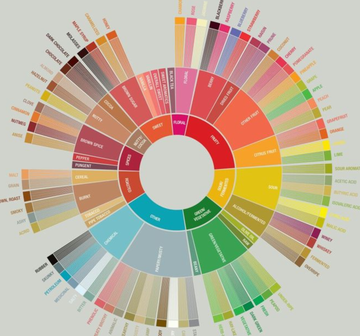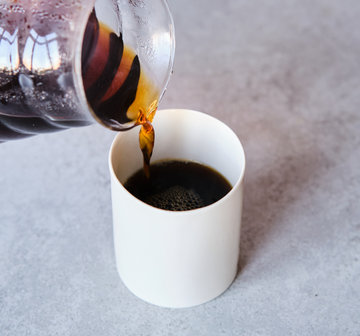There are many studies on the favorable effects of coffee or caffeine on physical activity and exercise, most of them referring to long-term sports such as running or cycling. We explain it to you below.
But let's start with the origin, which we love.
WHAT IS CAFFEINE?
Caffeine is an alkaloid from the group of...... (let's skip the scientific definition). Caffeine, so that we understand each other, is a stimulant substance present in more than 60 species of plants from which coffee, tea or cocoa is obtained, being present in these products and also in energy drinks.
It is the most consumed psychoactive substance in the world and we know that it temporarily reduces states of drowsiness and sleep and increases attention.
But the consumption of caffeine is not limited only to disturbing sleep or causing that feeling of sudden energy, but also activates several alerts that start the whole organism to sharpen its functions. Among these features we can find:
- Increase in heart rate.
- Improvement in vasoconstriction.
- Increased psychostimulation.
- Improved urination.
- Acceleration of metabolic rate.
COFFEE IS NOT JUST CAFFEINE
We speak in scientific terms when. Of course, coffee for us is almost a way of life and a focus for many of the things we do. We don't see it as a mere caffeine hit.
But it is that consuming caffeine is not the same as consuming coffee . The effects of consuming isolated caffeine are different to results when consuming coffee. In general, coffee represents a small contribution of macro and micro nutrients with respect to what are the recommended intakes. We can find vitamins like niacin, phenolic compounds like chlorogenic and caffeic acid. The latter contribute in a very important way to the total antioxidants in the diet.

Espresso, pure poetry
CAFFEINE TO IMPROVE SPORTS PERFORMANCE
We have already seen that caffeine is a stimulant for the central nervous system (memory, perception, learning...) and the heart: it reduces states of drowsiness and temporarily increases attention.
But it also acts as a thermogenic by increasing basal metabolism (energy expenditure per unit of time), which also explains the increase in body temperature and additional energy costs.
For this reason it is often said that it is a good fat burner , since it somewhat stimulates fat loss by mobilizing, releasing and oxidizing fatty acids from fat cells.
But what is interesting for athletes is that caffeine helps increase cardiac output, increasing oxygenation to the muscles, reducing fatigue and delaying its onset.

The main hypothesis by which coffee/caffeine can improve performance is the antagonistic effect on adenosine receptors. Adenosine normally promotes sleep and suppresses arousal, but in competition with caffeine, fewer receptors in the brain detect adenosine, making us more alert. This allows the body to create greater force during your muscle contraction and to contract those muscles with greater capacity and more frequently.

There is also a perception that exercise actually feels a bit easier , as well as reducing pain during exercise, which means movements can be more frequent and forceful. This has been shown to improve performance in a variety of exercises, including intermittent sports such as soccer and racquet sports, endurance exercises such as running and cycling, and resistance exercises such as weight lifting.
The most scientifically supported effect is the improvement of aerobic resistance, such as in cycling, athletics, rowing or cross-country skiing. In these sports, caffeine is capable of increasing the total work done, increasing the time to exhaustion and decreasing the time spent performing an aerobic endurance test.
POSSIBLE NEGATIVE EFFECTS
Let's start from the assumption that any type of substance does not affect people in the same way. In coffee, the undesirable effects of tachycardia, nervousness, etc. Associated with its moderate consumption, it can occur in some people who are more sensitive to caffeine and with poor individual tolerance.
In relation to sport, gastrointestinal discomfort may occur due to gastric irritation and due to the effort made, it may manifest with a little more intensity. Regarding sleep disturbances, they may manifest after high-intensity physical activity late in the day.
HOW MUCH CAFFEINE TO TAKE?
To begin to feel the effects of caffeine, only about 20 mg approx. Calculate your needs with the ratio : 0.3 mg / kg weight. If you have never had coffee, start with the lowest dose and add little by little.
Caffeine benefits seem to peak at around 200mg. Above this dose there are no additional benefits. In fact, the adverse effects are beginning to increase.
As a pre-workout it is convenient to drink coffee 1 or 2 hours before. Use it to compete or some specific training for its intensity. Thus the effect will be stronger than if you drink caffeine regularly every time you do any physical activity.
In summary , there is a large body of evidence that caffeine intake is beneficial for athletic performance. Ideally, consume it approximately 60 minutes prior to exercise as it provides a means to improve aerobic endurance performance as well as endurance and high-intensity exercise activities.
HOW DO YOU LIKE YOUR COFFEE?
Each person is a world and our world is coffee. We have something for all tastes: slow , espresso , cold brew and for the laziest bio& compost capsules compatible with Nespresso. Do you need to ensure stock? Hit the pack.
See you soon.






